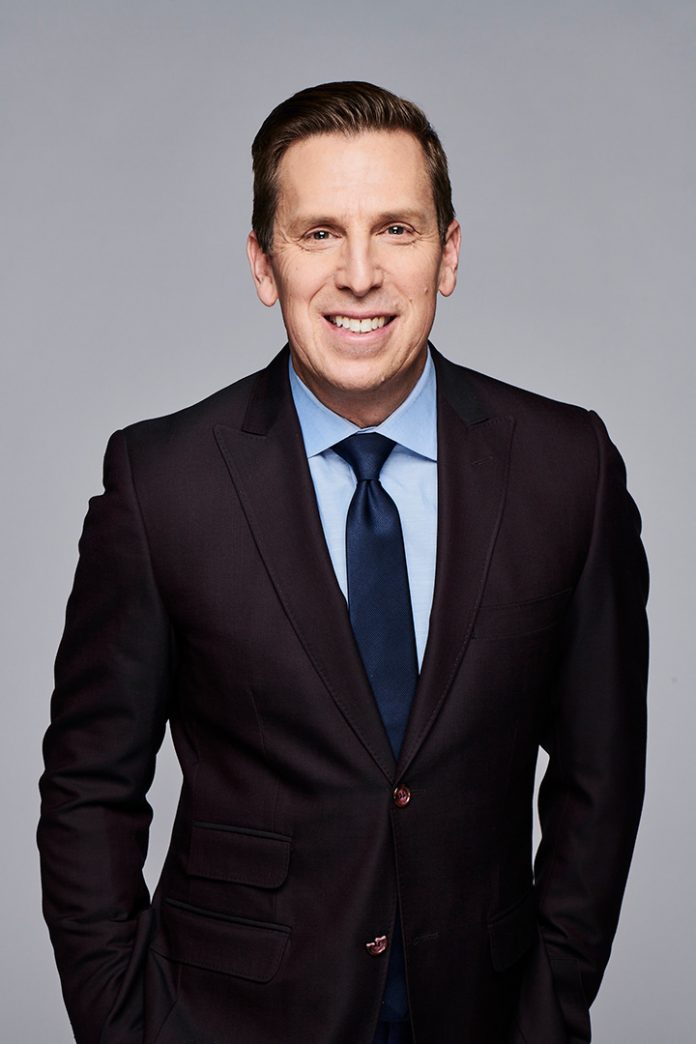When many people hear the name James Duthie, they think sports, TSN, broadcasting – or all three. There was a time when he hoped you might think ‘athlete’ instead, more specifically, professional football player.
Duthie was recruited by McGill University, and up until he was 17 or 18-years-old, his plan was to go there, study to become a phys-ed teacher, play football and eventually go pro – a dream that he now chuckles about looking back.
“I was a five-foot-ten, 155-pound defensive back with mediocre speed,” says Duthie.
The turning point was at the end of high school in Ottawa when he realized he wasn’t going to play pro football.
Although his dream didn’t come true, he went on to become one of the most recognizable faces in Canadian sports media – and while his job looks glamourous, it has also been a lot of work.
He applied to Carleton University, where he decided to chase journalism. Duthie says looking back, broadcasting had always been in the back of his mind.
“I was one of those guys who even like 14, 15-years-old would turn down the TV and do my own commentary,” says Duthie.
Sports broadcasting didn’t happen right away. He worked at CTV News in Ottawa for seven years first because he couldn’t initially get a job in sports, he says.
“There was a lot of side-tracking along the way but, ultimately, I think I ended up where I always wanted to be,” Duthie says.
He says his time in news helped him to become a better sports broadcaster. It has helped him keep an “independent view of things” when covering sports. He also says the business has its own way of making sure he stays unbiased.
“I think the business sucks the fan out of you,” says Duthie. “You end up cheering for people.”
Instead of passionately cheering for teams, Duthie says he now cheers for good games, what’s best for TSN or even what’s best for his family.
“Sometimes for your life, you cheer for a series to be over if you need to get home for something for your kids,” says Duthie.
Cheryl Duthie, his wife of 22 years, says it really bothered him missing events for his kids when they were younger. They are now 18, 20 and 22.
“He does miss a lot of events, like birthdays and holidays when he is on the road, but he goes out of his way to make up for it when he is at home,” she says. “It’s easier now that the kids are grown.”
He says one of the hardest parts is having to be on the road all the time, which is why he moved to hosting – but that still means time on the road.
“One of my daughters’ birthdays is June 1, when I was always at the Stanley Cup finals, so I missed eight birthdays in a row,” Duthie says.
People may see his job as glamourous. He says there are fun parts to his job, but it’s important not to lose sight of the work that is involved too. If you don’t do the work, you don’t get to cover the events, according to Duthie.
He says all the work that needs to be done behind the scenes keeps him humble.
“The fun part for me is always the being on TV part, doing the shows, whatever it may be,” says Duthie. “The part that is work is doing the preparation during the day, making sure I know everything about both the teams that are playing.”
Duthie says it’s easy to get focused on the work that must be done and forget where he is. The third period of the Stanley Cup final or the fourth quarter of the NBA championship game are often spent worrying about what he is going to talk about.
But sometimes Duthie just slows down to take a breath.
“Take a moment to go ‘man this is really cool, look where you are and look at this incredible game you are watching’,” he says.




